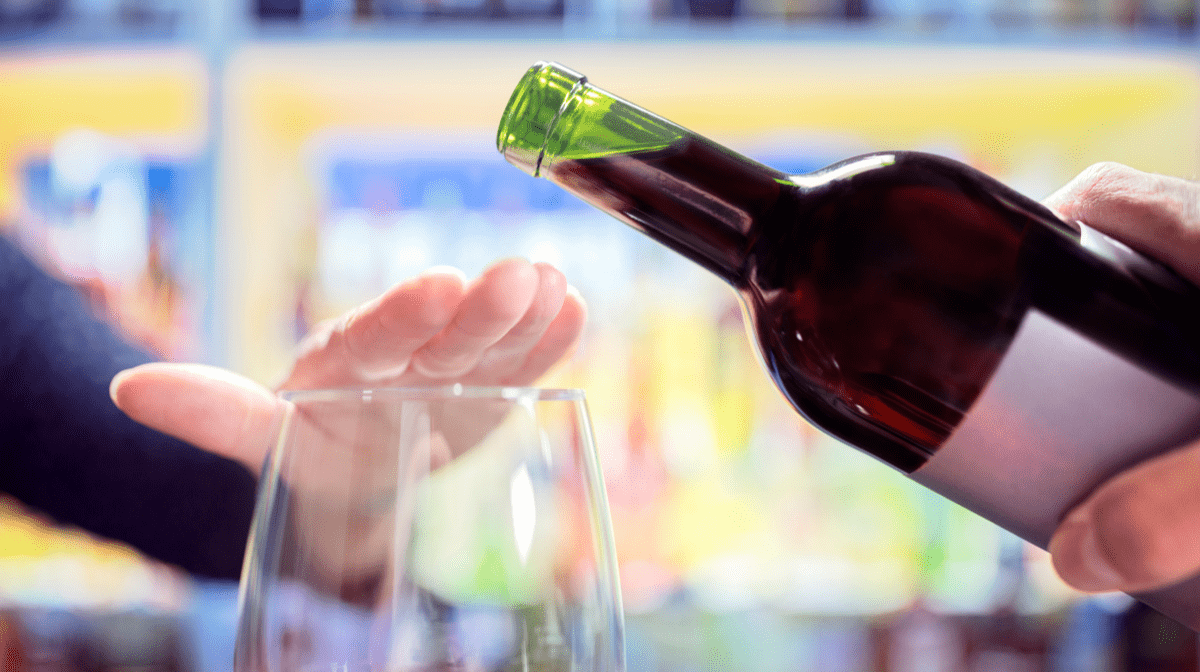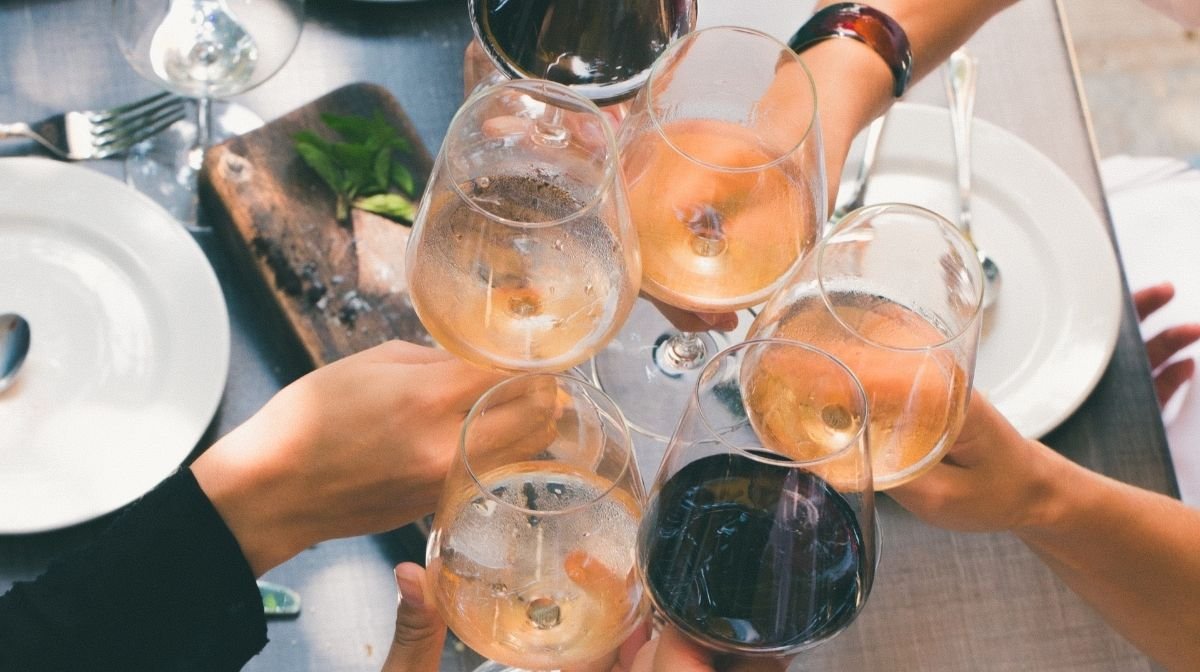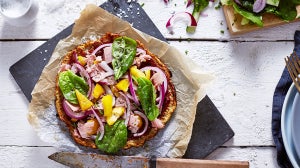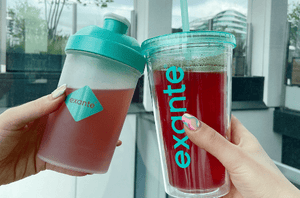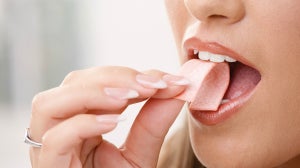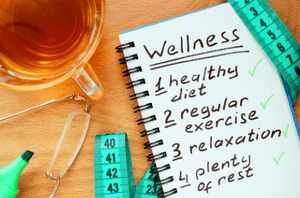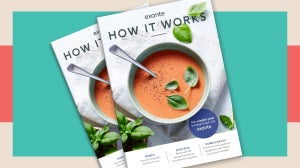
Many people will be challenging themselves to go sober this October, maybe to improve their health or simply to back on their alcohol intake especially if this has increased recently over lockdown.1 From a UK population survey sent to 2,000 people, a quarter reported having drunk more alcohol during lockdown than they usually do.1
There are many conflicting messages about how alcohol can impact your health and weight. The following blog aims to provide you with an insight on the most up to date evidence on the impacts of alcohol on health, weight and what the public recommendations are.
What is Alcohol?
Alcohol is known as ethanol and is a psychoactive substance usually found in drinks. It is derived from yeasts that break down sugar in carbohydrate-rich foods like grapes to make wine, and grains to make beer.
Drinking alcohol may impact your mood and mental state. Every person will have a variable tolerance to a different amount of alcohol. In some people, it can increase their confidence and impair their judgement resulting in behaviour that they may often end up regretting. 2.3
What is a unit of Alcohol?
Alcohol units were first introduced into the United Kingdom in 1987 to help people keep track of their drinking. One unit equals 10 ml or 8 g of pure alcohol which is equivalent to the amount a person can process in an hour.4
The Government recommendations are for men and women to drink no more than 14 units a week on a regular basis and to spread this over 3 or more days.4 14 units equals to 6 pints of average strength beer or 10 small glasses of low-strength wine.
You can also work out how many units there are in any drink by multiplying the total volume of a drink in mls, by its alcohol by volume (ABV) and dividing the result by 1,000.4 For example, in a 568 ml pint of strong lager with an ABV 5.2%. 5.2 (%) x 568 (ml) divided by 1,000 = 2.95 units.
In a 125 ml glass of prosecco with a ABV 12% = 1.5 units.
In a 175 ml glass of white wine with a ABV 13% = 2.3 units.
In a 568 ml of cider with a ABV 4.5% = 2.6 units.
In a gin and tonic, one 25 ml shot with a ABV 40% = 1 units.
In a 50 ml serving of Baileys/Irish cream liquor there are 0.8 units.
What are the health risks and benefits linked to alcohol?
Studies have shown the negative health consequences linking excessive alcohol drinking to conditions including heart disease, obesity, and cancer.5
Some research does link little to moderate alcohol drinking with a lower risk of developing cardiovascular disease than non-drinkers.5 It is suggested that in some alcoholic drinks like red wine, there are antioxidants linked with cardioprotective effect. 6
This does not mean you need to drink alcohol to improve your health as you can find the same antioxidants in plenty of fruits and vegetables. However, if you enjoy having one drink every now and then as part of a balanced diet, the evidence shows it does no significant harm.5,6
Does alcohol cause weight-gain?
Studies have linked drinking alcohol to weight gain.7,8 It is thought that excessively drinking leads to an extra consumption of calories from alcohol and on occasions from the high-fat foods consumed after a session.
A 175ml medium glass of wine contains about 140 calories. If you are mixing a spirit with a full-sugar mixer like lemonade or juice, then it will contain even more calories.
If you are looking to lose weight, you must aim to keep your calories to a minimum to continue being within a calorie deficit. You want to choose foods that are rich in nutrients to make up your daily calorie intake instead of empty calories from alcohol. Empty calories is a term used when you consume a food or drink that is high in energy but has close to none nutrients.
Alcohol can also lower your inhibitions, and this may lead to you choosing higher calorie foods for comfort that you may have been trying to avoid whilst following your weight-loss plan. 2.3
Drinking alcohol in any amounts may also impact your sleep. 8 Studies have shown that for healthy individuals, alcohol can aid them to sleep quickly and deeply for a while. This doesn’t mean you are having a good quality sleep however because drinking before you go to sleep can reduce your rapid eye movement (REM) sleep.9 REM is important for restoring mental processes including memory and emotional processing.
Can I still drink alcohol when losing weight?
To lose weight you need to first make sure you are in a calorie deficit. This means consuming less calories than what you burn in a day. Your exante diet plan will help you to create this deficit to help promote the weight-loss you want to achieve.
Before commencing on your weight-loss journey, it is usually advised to try choosing a period of the year that your social calendar is relatively free of much to make it easier for you to stick to it without any distractions.
When following an exante diet plan, we recommend avoiding alcohol so you can control your calorie intake. If you are at a social occasion, there are plenty of alcohol-free drinks you can choose from or simply opt for a diet lemonade.
A few examples of lower calorie alcoholic drinks include:
A shot of any spirit of choice including Vodka or Gin with a sugar-free mixer including diet lemonade or soda water. This will keep your overall drink to fewer than 100 calories.
A glass of prosecco or champagne, this will contain less than 100 calories.
You can choose to go sober this October and have a break from alcohol, especially if you are doing it for a great incentive in raising money for charity. It is also a great opportunity to make healthy changes.
How do I detox from alcohol?
There is no need to push your body into a ‘detox’ mode because our bodies already do this for you.10 If you are however looking at reducing your alcohol intake, this is certainly a great time to get yourself motivated and started.
Breaking old habits can be tough, which is why we encourage you to gradually work on breaking them and creating new ones. Try to focus on gradually cutting back by setting yourself a small goal.
So, if you currently are drinking five times a week, reduce this by one day and then continue reducing this as you feel able too.
Excessive alcohol drinking can lead to weight gain and various health conditions.
You do not need to avoid alcohol completely but reducing your alcohol intake will help with losing weight and improving your health overall.
The Government recommendations including avoiding drinking on consecutive days and aiming for no more than 14 units a week.
When following an exante diet plan, we recommend avoiding alcohol so you can control your calorie intake. If you are looking to reduce your alcohol intake, please check out this latest blog here - 8 ways to reduce your alcohol intake.
References
- Research: drinking in the UK during lockdown and beyond | Alcohol Change UK. (2020). Retrieved 25 September 2020, from https://alcoholchange.org.uk/blog/2020/drinking-in-the-uk-during-lockdown-and-beyond.
- Steele, C. and Josephs, R., 1990. Alcohol myopia. Its prized and dangerous effects. American Psychologist, [online] 45(8), pp.921-33. Available at: <https://pubmed.ncbi.nlm.nih.gov/2221564/> [Accessed 13 September 2020].
- Steele, C. and Southwick, L., 1985. Alcohol and social behavior: I. The psychology of drunken excess. Journal of Personality and Social Psychology, 48(1), pp.18-34.
- Every Mind Matters | One You. (2020). Retrieved 20 September 2020, from https://www.nhs.uk/oneyou/for-your-body/drink-less/know-your-alcohol-units/.
- Grønbaek, M. (2009). The positive and negative health effects of alcohol- and the public health implications. Journal Of Internal Medicine, 265(4), 407-420. doi: 10.1111/j.1365-2796.2009.02082.x.
- Castaldo, Narváez, Izzo, Graziani, Gaspari, Minno, & Ritieni. (2019). Red Wine Consumption and Cardiovascular Health. Molecules, 24(19), 3626. doi: 10.3390/molecules24193626
- Booranasuksakul, U., Singhato, A., Rueangsri, N., & Prasertsri, P. (2019). Association between alcohol consumption and body mass index in university students. Asian/Pacific Island Nursing Journal, 4(1), 57-65. doi: 10.31372/20190401.1035.
- Markwald, R., Melanson, E., Smith, M., Higgins, J., Perreault, L., Eckel, R., & Wright, K. (2013). Impact of insufficient sleep on total daily energy expenditure, food intake, and weight gain. Proceedings Of The National Academy Of Sciences, 110(14), 5695-5700. doi: 10.1073/pnas.1216951110.
- van Schrojenstein Lantman, M., Roth, T., Roehrs, T., & Verster, J. (2017). Alcohol Hangover, Sleep Quality, and Daytime Sleepiness. Sleep And Vigilance, 1(1), 37-41. doi: 10.1007/s41782-017-0008-7
- Klein, A., & Kiat, H. (2014). Detox diets for toxin elimination and weight management: a critical review of the evidence. Journal Of Human Nutrition And Dietetics, 28(6), 675-686. doi: 10.1111/jhn.12286.

